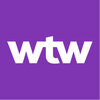
i
Deloitte
Filter interviews by
Deloitte Senior Executive Interview Questions and Answers for Experienced
10 Interview questions
Transfer pricing is the practice of determining the value of goods or services exchanged between related entities in different tax jurisdictions.
Transfer pricing is used to determine the price of goods or services transferred between related entities in different countries.
It is important for companies to ensure that transfer pricing is done at arm's length, meaning the price is similar to what would be charged be...
Operating leverage refers to the degree to which fixed costs are used in a company's operations.
Operating leverage measures the impact of fixed costs on a company's profits.
A company with high fixed costs and low variable costs has high operating leverage.
Operating leverage can magnify profits in good times, but also magnify losses in bad times.
Examples of fixed costs include rent, salaries, and equipment costs.
Op...
Contract manufacturing is when a company hires another company to produce their products, while toll manufacturing is when a company provides raw materials to another company to produce a product.
Contract manufacturing involves outsourcing the production of a product to a third-party manufacturer.
The company that hires the manufacturer retains control over the design and distribution of the product.
Toll manufactur...
Transfer pricing involves setting prices for transactions between related entities, impacting tax and financial reporting.
Understand the arm's length principle: Prices should reflect market conditions as if the entities were unrelated.
Consider local regulations: Different countries have specific rules governing transfer pricing, such as documentation requirements.
Use comparable uncontrolled prices: Identify simila...
What people are saying about Deloitte





Discount on issuance of bond is treated as an expense and is amortized over the life of the bond.
Discount on issuance of bond is the difference between the face value of the bond and the amount received by the issuer.
It is treated as an expense and is amortized over the life of the bond.
The amortization of the discount reduces the interest expense on the bond.
For example, if a bond with a face value of $1,000 is i...
IFRS stands for International Financial Reporting Standards.
IFRS is a set of accounting standards developed by the International Accounting Standards Board (IASB).
It is used by companies to prepare and present their financial statements.
IFRS is designed to provide a common language for business affairs so that company accounts are understandable and comparable across international boundaries.
Examples of financial ...
Dividend is a distribution of a portion of a company's earnings to its shareholders.
Dividend is a payment made by a corporation to its shareholders, usually in the form of cash or additional shares of stock.
It is a way for companies to share their profits with their investors.
Dividends are typically paid out regularly, such as quarterly or annually.
The amount of dividend paid to each shareholder is usually determi...
Bonus share is a free additional share given to existing shareholders by a company as a reward for their investment.
Bonus shares are issued by a company to its existing shareholders at no cost.
They are given as a reward for the shareholders' investment in the company.
Bonus shares do not result in any cash inflow for the company.
They increase the number of outstanding shares, but do not affect the ownership percent...
Bonus shares are issued by companies to reward shareholders by giving them additional shares at no cost.
Bonus shares are issued from the company's reserves or profits.
They are given to existing shareholders in proportion to their current holdings.
Bonus shares do not increase the value of the company, but they do increase the number of shares outstanding.
The purpose of issuing bonus shares is to increase liquidity ...
Deloitte Senior Executive Interview Experiences for Experienced
5 interviews found
I applied via Approached by Company and was interviewed in Apr 2023. There were 3 interview rounds.

(3 Questions)
- Q1. What is transfer pricing and its different methods?
- Ans.
Transfer pricing is the practice of determining the value of goods or services exchanged between related entities in different tax jurisdictions.
Transfer pricing is used to determine the price of goods or services transferred between related entities in different countries.
It is important for companies to ensure that transfer pricing is done at arm's length, meaning the price is similar to what would be charged between...
- Q2. What is operating leverage
- Ans.
Operating leverage refers to the degree to which fixed costs are used in a company's operations.
Operating leverage measures the impact of fixed costs on a company's profits.
A company with high fixed costs and low variable costs has high operating leverage.
Operating leverage can magnify profits in good times, but also magnify losses in bad times.
Examples of fixed costs include rent, salaries, and equipment costs.
Operati...
- Q3. What is contract manufacturing and toll manufacturing
- Ans.
Contract manufacturing is when a company hires another company to produce their products, while toll manufacturing is when a company provides raw materials to another company to produce a product.
Contract manufacturing involves outsourcing the production of a product to a third-party manufacturer.
The company that hires the manufacturer retains control over the design and distribution of the product.
Toll manufacturing i...
(2 Questions)
- Q1. Situational based questions on transfer pricing
- Ans.
Transfer pricing involves setting prices for transactions between related entities, impacting tax and financial reporting.
Understand the arm's length principle: Prices should reflect market conditions as if the entities were unrelated.
Consider local regulations: Different countries have specific rules governing transfer pricing, such as documentation requirements.
Use comparable uncontrolled prices: Identify similar tra...
- Q2. Questions on forex transactions
Interview Preparation Tips
- Transfer pricing
- Financial Accounting
- International Taxation
- Financial Management
I applied via Job Portal and was interviewed in Sep 2022. There were 2 interview rounds.
(2 Questions)
- Q1. Tell about your previous company
- Q2. Tell about your role
- Ans.
As a Senior Executive, I lead strategic initiatives, drive operational excellence, and foster a culture of innovation within the organization.
Develop and implement long-term strategic plans to achieve organizational goals, such as increasing market share by 15% over three years.
Oversee cross-functional teams to ensure alignment and collaboration, exemplified by leading a project that improved interdepartmental communic...
(1 Question)
- Q1. Tell about your process
- Ans.
My process involves strategic planning, team collaboration, and continuous evaluation to achieve organizational goals effectively.
Define clear objectives: For example, setting quarterly sales targets based on market analysis.
Engage stakeholders: Regular meetings with department heads to align on priorities and resources.
Implement a feedback loop: Conduct surveys to gather team insights and adjust strategies accordingly...
Interview Preparation Tips
No canteen only pantry available (tea coffee)
Work life balance is bad..
U need to work more then 20 hrs to achive your targets
Interview Questionnaire
9 Questions
- Q1. Tell me something about yourself
- Ans.
Dynamic Senior Executive with 15+ years in strategic leadership, driving growth and innovation across diverse industries.
Proven track record in leading cross-functional teams to achieve operational excellence, exemplified by a 30% increase in productivity at my last company.
Expert in developing and executing strategic initiatives that align with corporate goals, such as launching a new product line that generated $5M i...
- Q2. What us dividend
- Ans.
Dividend is a distribution of a portion of a company's earnings to its shareholders.
Dividend is a payment made by a corporation to its shareholders, usually in the form of cash or additional shares of stock.
It is a way for companies to share their profits with their investors.
Dividends are typically paid out regularly, such as quarterly or annually.
The amount of dividend paid to each shareholder is usually determined b...
- Q3. What is bonus share
- Q4. What is the source of issue of bonus share
- Q5. What is IFRS
- Q6. Tell some name of IFRS
- Q7. What is bond
- Q8. How is discount on issuance 9f bond is treated
- Ans.
Discount on issuance of bond is treated as an expense and is amortized over the life of the bond.
Discount on issuance of bond is the difference between the face value of the bond and the amount received by the issuer.
It is treated as an expense and is amortized over the life of the bond.
The amortization of the discount reduces the interest expense on the bond.
For example, if a bond with a face value of $1,000 is issued...
- Q9. Why di you want to change the job
- Ans.
I'm seeking new challenges and opportunities for growth that align with my career aspirations and values.
Desire for professional growth: I want to take on more leadership responsibilities, as demonstrated in my previous role where I led a successful project.
Alignment with company values: I admire your organization's commitment to innovation and sustainability, which resonates with my personal values.
Seeking new challen...
I applied via Naukri.com and was interviewed in Feb 2021. There were 4 interview rounds.
Interview Questionnaire
1 Question
- Q1. Journal Entries, basic Accounting Principles, and question from current Operations and Working
Interview Preparation Tips
I applied via Recruitment Consultant and was interviewed before Jan 2019. There were 4 interview rounds.
Interview Questionnaire
1 Question
- Q1. Questions about my previous job, questions related to P&L analysis, Balance Sheet, ratios because since my profile is related to M&A financial due diligence, all questions were around these areas.
Interview Preparation Tips
Interview questions from similar companies

I applied via Walk-in and was interviewed before Feb 2021. There were 2 interview rounds.
(5 Questions)
- Q1. What are your salary expectations?
- Ans.
I expect a competitive salary based on my skills, experience, and industry standards.
Research industry standards: For example, analysts in my region typically earn between $60,000 and $80,000.
Consider my experience: With 3 years in data analysis, I believe a salary towards the higher end is justified.
Highlight skills: My proficiency in SQL and data visualization tools adds value, warranting a competitive salary.
Flexibi...
- Q2. Share details of your previous job.
- Ans.
In my previous role as an Analyst, I focused on data analysis, reporting, and strategic recommendations to drive business growth.
Conducted in-depth data analysis using tools like Excel and SQL to identify trends and insights.
Developed comprehensive reports that informed senior management decisions, leading to a 15% increase in operational efficiency.
Collaborated with cross-functional teams to streamline processes, resu...
- Q3. Why are you looking for a change?
- Ans.
I'm seeking new challenges and opportunities for growth that align with my career goals and aspirations.
Desire for professional growth: I'm looking for a role that offers more opportunities for advancement, such as leadership training.
Seeking new challenges: My current position has become routine, and I'm eager to tackle more complex projects that push my analytical skills.
Alignment with career goals: I want to work in...
- Q4. What are your strengths and weaknesses?
- Ans.
I excel in analytical thinking and communication, but I sometimes struggle with time management under pressure.
Strength: Strong analytical skills - I can dissect complex data sets to identify trends and insights, as demonstrated in my previous role.
Strength: Effective communicator - I can present findings clearly to both technical and non-technical stakeholders, ensuring everyone is aligned.
Weakness: Time management - ...
- Q5. Tell me about yourself.
- Ans.
Analytical thinker with a background in data analysis, passionate about leveraging insights to drive business decisions.
Educational Background: Bachelor's degree in Economics, focusing on data analysis and statistics.
Professional Experience: Worked as a data analyst at XYZ Corp, where I improved reporting efficiency by 30%.
Technical Skills: Proficient in SQL, Python, and Excel for data manipulation and visualization.
Pr...
(1 Question)
- Q1. Previous process knowledge and why looking for change
Interview Preparation Tips
- Powerpoint
- Power Bi
- Advanced Excel
- Smart sheet
- Insurance
- Reinsurance
- Regulators

I applied via Campus Placement and was interviewed before Jun 2020. There were 6 interview rounds.
Interview Questionnaire
4 Questions
- Q1. Why EY
- Q2. Your strength
- Q3. Your weakness
- Q4. Long term and short term goals
Interview Preparation Tips

I applied via Naukri.com and was interviewed before Mar 2021. There were 2 interview rounds.
Global warming
General with companies details
Interview Preparation Tips

I applied via Company Website and was interviewed in Mar 2021. There was 1 interview round.
Interview Questionnaire
1 Question
- Q1. Basic about Derivative products relevant to profile
Interview Preparation Tips

I applied via Campus Placement and was interviewed in Jan 2016. There were 6 interview rounds.
Interview Questionnaire
3 Questions
- Q1. Questions on resume
- Q2. Small Case study ( statistics )
- Q3. Why analytics and goal in life
- Ans.
Analytics helps me make informed decisions and achieve my goals in life.
Analytics provides valuable insights and data-driven solutions to complex problems.
Setting goals helps me stay focused and motivated towards achieving personal and professional success.
By analyzing data and setting specific goals, I can track my progress and make necessary adjustments to reach my objectives.
For example, in my previous role as a mar...
Interview Preparation Tips
Experience: Dual Degree students with decent CPI, relevant projects and extras
Tips: Highlight subjects and projects involving data mining, machine learning, marketing research
Round: Test
Experience: PST had 26 questions to be done in an hour (3 cases) and 20 QUESTIONS in 30 mins general apti (level: 2-3 of Arun sharma)
Tips: practice!
Duration: 1 hour 30 minutes
Total Questions: 46
Round: Technical + HR Interview
Experience: Since my resume was filled with
College Name: IIT Kanpur
Deloitte Interview FAQs
Tell us how to improve this page.
Deloitte Interviews By Designations
- Deloitte Consultant Interview Questions
- Deloitte Analyst Interview Questions
- Deloitte Senior Consultant Interview Questions
- Deloitte Assistant Manager Interview Questions
- Deloitte Associate Analyst Interview Questions
- Deloitte Tax Consultant Interview Questions
- Deloitte Business Analyst Interview Questions
- Deloitte Data Analyst Interview Questions
- Show more
Interview Questions for Popular Designations
Overall Interview Experience Rating
based on 1 interview experience
Difficulty level
Duration
Interview Questions from Similar Companies
Deloitte Senior Executive Reviews and Ratings
based on 147 reviews
Rating in categories
|
Consultant
39.7k
salaries
| ₹10.1 L/yr - ₹21.4 L/yr |
|
Senior Consultant
24.6k
salaries
| ₹16.5 L/yr - ₹33.1 L/yr |
|
Analyst
16.5k
salaries
| ₹5 L/yr - ₹12 L/yr |
|
Assistant Manager
11.2k
salaries
| ₹12.1 L/yr - ₹22 L/yr |
|
Manager
7.9k
salaries
| ₹24.5 L/yr - ₹43.4 L/yr |

Accenture

PwC

Ernst & Young

Cognizant
- Home >
- Interviews >
- Deloitte Interview Questions >
- Deloitte Interview Questions for Experienced














